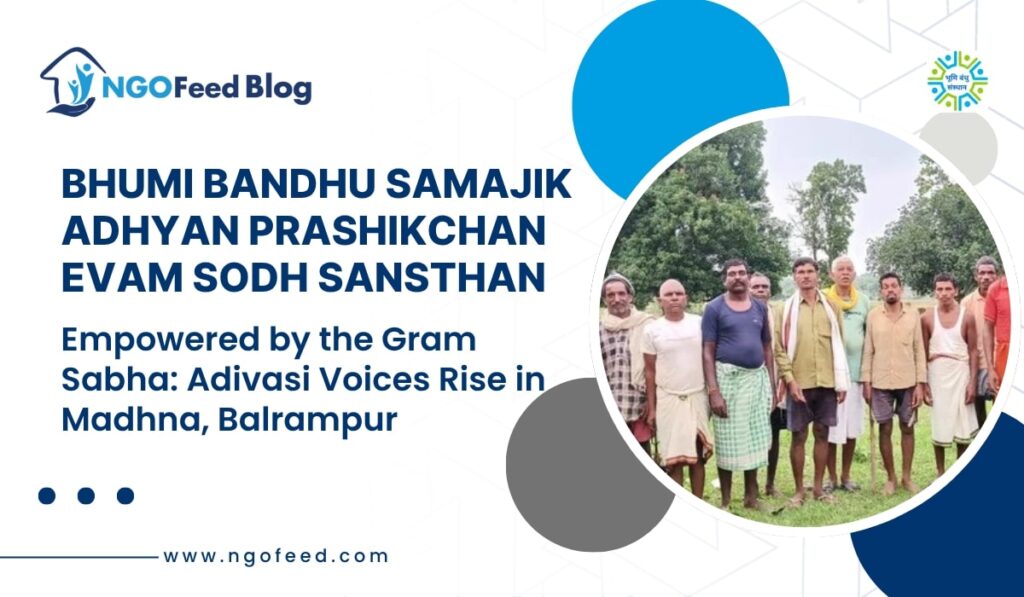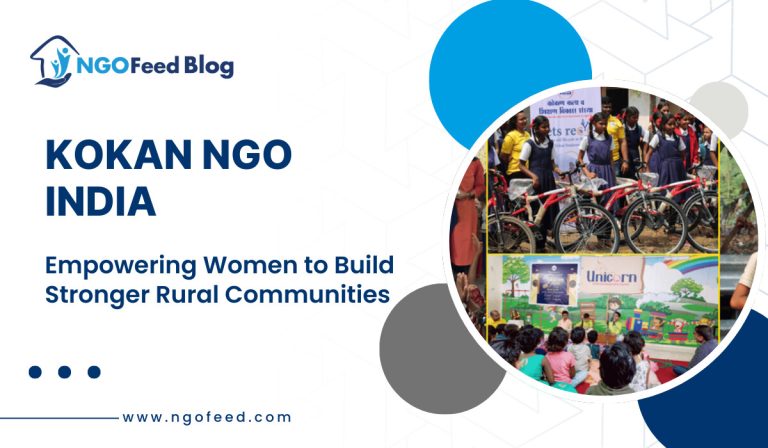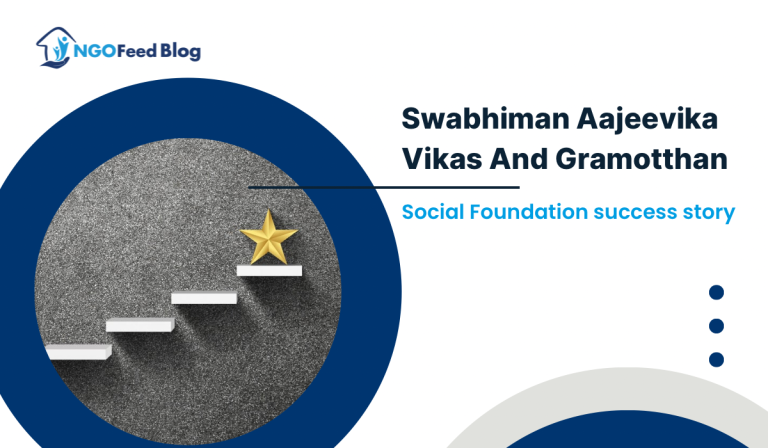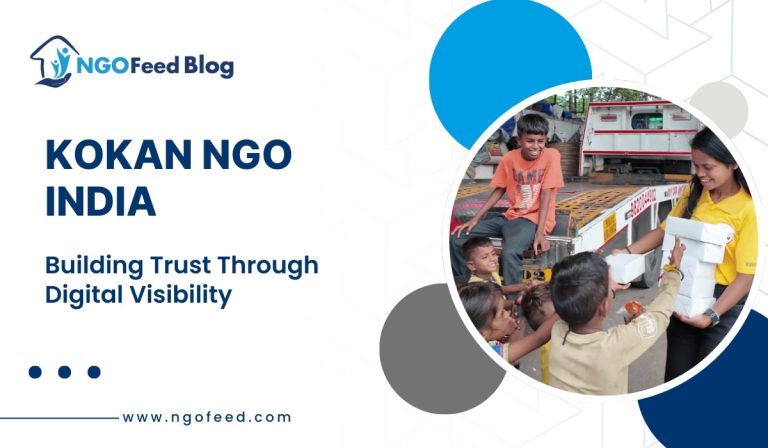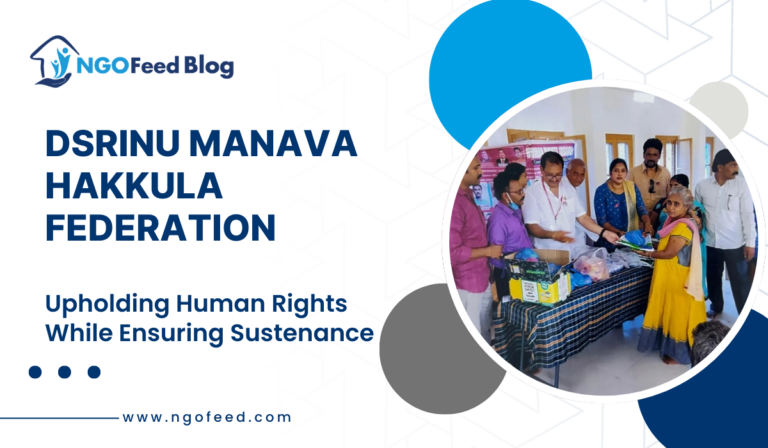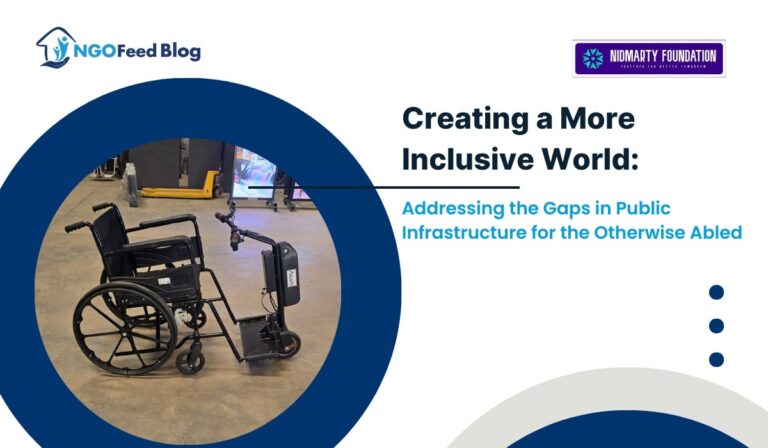Bhumi Bandhu Sansthan Adivasi Voices in Balrampur: Forest Rights Act Ignites Change- The Inspiring Story of Madhna Village, Gurmutti Panchayat, Balrampur District Village – Madhna, Gram Panchayat – Gurmutti, District – Balrampur, Chhattisgarh Nestled deep within the forests of Chhattisgarh, Madhna village, part of Gurmutti Gram Panchayat, stands as a shining example of how awareness and collective action can transform forest-dependent tribal communities.
Table of Contents
Bhumi Bandhu Sansthan Adivasi Voices in Balrampur
With a population of approximately 2,200 people, the village is predominantly inhabited by Adivasi (tribal) communities whose livelihood depends largely on forests, agriculture, and daily wage labor. Through the dedicated efforts of Bhumi Bandhu Samajik Adhyayan Prashikshan evam Shodh Sansthan, a grassroots organization committed to tribal rights and empowerment, the village has seen a significant shift in local governance and community awareness, especially through work related to the Forest Rights Act (FRA). Initially, Gram Sabha (village assembly) meetings in Madhna were rare or irregular.
Bhumi Bandhu Sansthan – Gram Sabha
Most villagers were unaware of their legal rights under FRA, PESA Act, or welfare schemes such as MGNREGA, ration, or pensions. The Sansthan’s team began by conducting training sessions with the community, explaining forest rights laws in simple language, and strengthening the role and function of the Gram Sabha. One of the first major outcomes was the formation of the Forest Rights Committee (FRC) in the village with the support of the community.
Also Read: Bhumi Bandhu Sansthan Success Story: A Journey of Social Change and Empowerment
Forest Rights Act
The Sansthan helped villagers fill out individual and community claim forms under FRA. As of now, claims for 156 individual forest rights titles have already been submitted to the Sub-Divisional Level Committee (SDLC), and processing is underway. Anil Singh, President of the Gram Sabha, says, “Thanks to the support of Bhumi Bandhu Sansthan, people in our village have become aware of their legal rights. Today, Gram Sabha meetings are held regularly, and important decisions regarding MGNREGA work, ration distribution, pension benefits, and even land and forest matters are taken collectively.”
He adds that the biggest transformation has been the people’s initiative in protecting and managing their own forests. Villagers are now planting trees on their own, managing forest resources collectively, and have taken ownership of the protection of jal (water), jangal (forest), and jameen (land).
Also Read: Bhumi Bandhu Sansthan Fights for Forest Rights of Tribal Communities
Role of Gram Sabha Bhumi Bandhu Sansthan
The role of the Gram Sabha has shifted from a symbolic entity to a powerful and functional democratic body. With proper training and hand-holding, villagers now understand that Gram Sabha is the highest decision-making authority under both FRA and the PESA Act. Due to these changes, many villagers are now getting employment through MGNREGA and are on track to receive legal titles to the land they have cultivated for generations.
Anil Singh also expressed his gratitude to the organization, saying: “We want to continue learning about forest governance with Bhumi Bandhu Sansthan’s support. Exposure visits to other regions will help us see how other communities are managing their resources effectively.
Also Read: Bhumi Bandhu Sansthan Launched Education Centers Across 4 Districts in Chhattisgarh
We look forward to this learning journey.” This transformation is not just about one village—it is a model of community empowerment, legal literacy, and self-governance. With continued support and awareness, Madhna village is moving toward a future where tribal communities are not just beneficiaries, but leaders in protecting their land, identity, and rights.

